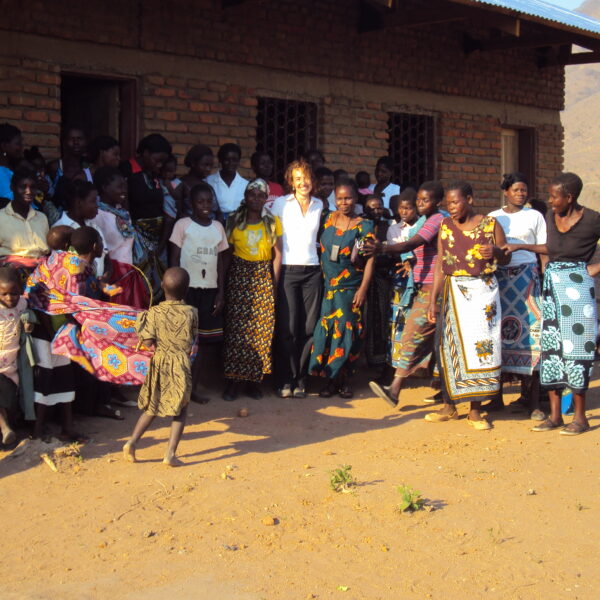 Malawi is a huge challenge: it has a high illiteracy rate and has one of the highest rates of early marriage in the world.
Malawi is a huge challenge: it has a high illiteracy rate and has one of the highest rates of early marriage in the world.
According to UNICEF’s 2020 research, the situation of children and women in Malawi is critical: 46.7% of girls marry before the age of 18 and, once married, many drop out of school; the rate of premature births is the highest in the world at around 13%; 39% of girls and boys are engaged in child labor; 71% of girls and boys are subject to violent discipline. One reason for this is poor access to education, particularly for girls: 32% of young women who, based on age, should be attending secondary school are out of school, compared with 23% of their male peers.
The pandemic has also led to even more girls dropping out of school. The closure of all schools and educational institutions in the country had an immediate impact on learners, especially the most marginalized. The resulting loss of all learning opportunities has particularly affected children with disabilities, those attending Open Schools, learners in socio-economic hardship and, finally, girls in the poorest and hardest-to-reach communities because they are not adequately prepared for the new modes of distance learning or home-based education support.
FMSI, in collaboration with the Marist Brothers, has already implemented 4 projects in Malawi including “Equity of access to quality education for girls and disadvantaged children“, which aims to promote equality by strongly affirming that equity and quality education are both a right and a necessity and by considering the issues of girls’ empowerment and gender equality as fundamental.
Below is a brief interview with Brother Francis Jumbe, project manager of the project, Provincial Councilor of Malawi and president of the African Mission Commission, with great experience in Marist initiatives in the field of education.
- Which challenge does Malawi face in providing quality education for young girls?
Certainly limited access to quality education: during 2020, 226,809 out of 270,558 candidates passed the primary school leaving certificate. However, only 83,835 candidates were selected to begin the first module in various secondary schools, or 36.9% of those who passed. A small percentage of the selected male and female students go to conventional national and district secondary schools, while most go to community day secondary schools, with few teachers and no reception facilities. Moreover, students who are not selected for secondary schools end up enrolling in “Open Secondary Schools” that operate in regular schools from 2pm to 5pm, where the quality of education provided is really poor and difficult for a girl to access. This Open school organization is not good for girls who, in Malawi, start out already disadvantaged and are victims of gender discrimination. The lack of selection and the long distances to reach secondary schools are factors that push a large number of girls to drop out of school. As a very common consequence, there are early marriages and premature pregnancies among girls; a situation that perpetuates the cycle of poverty.
- How parents influence girls’ education?
Many parents, especially in rural areas, still have the belief that the proper place for girls is in the kitchen. Because of the traditional roles girls play in the home, such as fetching water and firewood and taking care of younger siblings, education is not a necessity.
If a family is struggling financially, they would rather send a boy to school than a girl. In addition, financially struggling parents too often consider marrying off their teenage girls to overcome the family’s financial problems instead of sending them to school.
- Which impact can the project have in problem solving?
We are working hard to ensure that the project helps boys and girls acquire skills for everyday life. Education doesn’t just involve acquiring academic credentials; rather, it educates them to become productive members of their communities and how to successfully deal with everyday problems. Entrepreneurial education courses, for example, will provide skills to run small businesses. We can all help change the mindset: the myth that girls’ place is the kitchen should be dispelled. If given an opportunity, girls can play a significant role in improving family income and community development!


